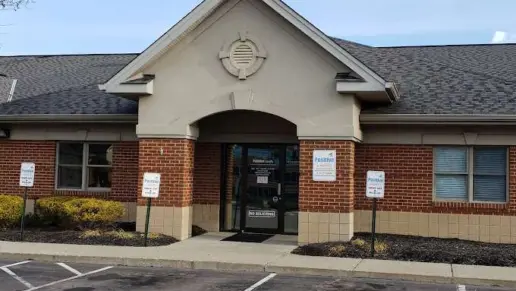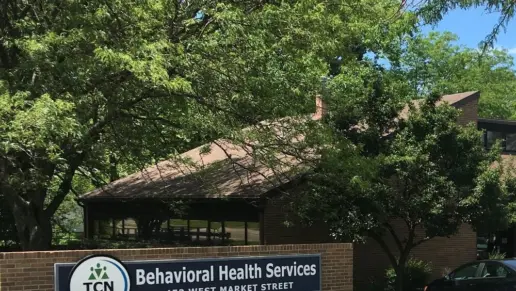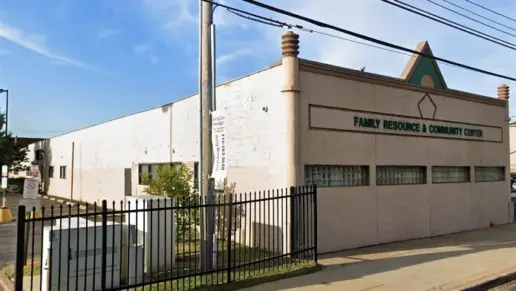About Buckeye Clinic
Buckeye Clinic is located in Columbus, Ohio. This is a drug recovery clinic that serves men and women who need support for a drug, alcohol or opioid use disorder. They offer medication-assisted treatment (MAT) using Suboxone. Care is offered in an outpatient setting. They accept policies from most major insurance providers including Medicaid and Medicare.
At the Buckeye Suboxone Clinic, you’ll work with a multidisciplinary team of professionals including counselors who specialize in drug and addiction recovery. After an initial evaluation, an individualized treatment plan will be created for you. This plan will include a mix of therapy and medication support.
They provide advanced medically assisted treatment using FDA-approved medications such as Suboxone. This medication can help you manage your withdrawal symptoms so that you can safely wean your body off of its chemical dependency. This therapy can also help you manage ongoing cravings.
You’ll also be supported through behavioral health therapy. There are individual counseling sessions with experienced drug and addiction therapists. With the support of cognitive behavioral therapy (CBT), you’ll learn how to manage stressful thoughts and negative emotions. You’ll also learn different coping strategies and techniques that will help you minimize your risk of relapse.
These counseling sessions are also committed to getting at the root of your addiction problems.
You’ll be encouraged to attend 12-step style programs including Alcoholics Anonymous (AA) and Narcotics Anonymous (NA). These programs will help you have a community of peers and mentors you can turn to during the difficult parts of your recovery.
Care is offered in a judgment-free setting. You’ll have a compassionate team on your side helping you navigate the obstacles of recovery.
Latest Reviews
Rehab Score
Gallery
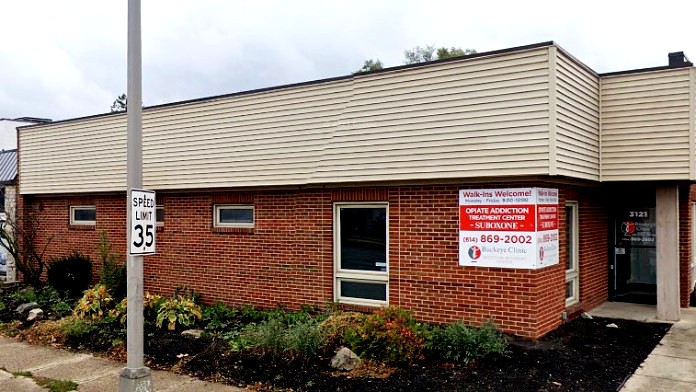
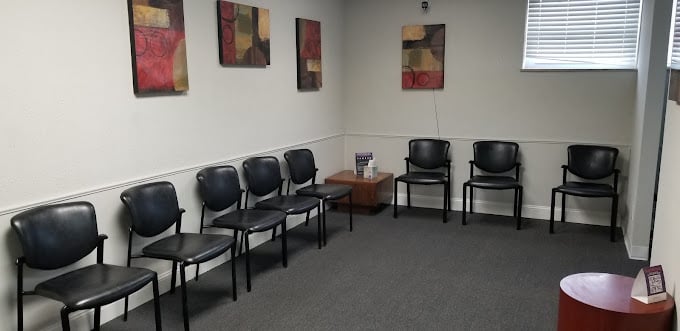
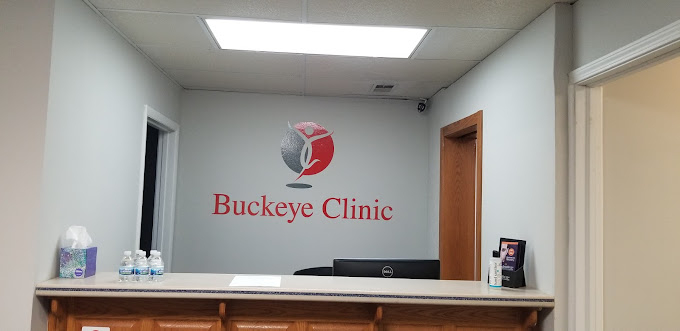
Location
Accepted Insurance





Other Forms of Payment
Private insurance refers to any kind of healthcare coverage that isn't from the state or federal government. This includes individual and family plans offered by an employer or purchased from the Insurance Marketplace. Every plan will have different requirements and out of pocket costs so be sure to get the full details before you start treatment.
Self-pay involves paying for treatment out of your own pocket. You can use savings or credit, get a personal loan, or receive help from family and friends to fund your treatment. If you don't have insurance or your insurance plan doesn't cover a specific program, self-pay can help ensure you still get the care you need.
Medicare is a federal program that provides health insurance for those 65 and older. It also serves people under 65 with chronic and disabling health challenges. To use Medicare for addiction treatment you need to find a program that accepts Medicare and is in network with your plan. Out of pocket costs and preauthorization requirements vary, so always check with your provider.
Medicaid is a state based program that helps lower-income individuals and families pay for healthcare. Medicaid covers addiction treatment so those enrolled can use their coverage to pay for rehab. When a program accepts Medicaid the client often pays very little or nothing out of their own pocket.
Addiction Treatments
Levels of Care
Treatments
Many of those suffering from addiction also suffer from mental or emotional illnesses like schizophrenia, bipolar disorder, depression, or anxiety disorders. Rehab and other substance abuse facilities treating those with a dual diagnosis or co-occurring disorder administer psychiatric treatment to address the person's mental health issue in addition to drug and alcohol rehabilitation.
Opioid rehabs specialize in supporting those recovering from opioid addiction. They treat those suffering from addiction to illegal opioids like heroin, as well as prescription drugs like oxycodone. These centers typically combine both physical as well as mental and emotional support to help stop addiction. Physical support often includes medical detox and subsequent medical support (including medication), and mental support includes in-depth therapy to address the underlying causes of addiction.
Substance rehabs focus on helping individuals recover from substance abuse, including alcohol and drug addiction (both illegal and prescription drugs). They often include the opportunity to engage in both individual as well as group therapy.
Programs


Clinical Services
Cognitive behavioral therapy in Ohio may occur in individual, group, or family sessions. It involves focusing on specific thought and behavior problems. Participants learn coping techniques and are asked to practice them as homework between sessions.
In individual therapy, a patient meets one-on-one with a trained psychologist or counselor. Therapy is a pivotal part of effective substance abuse treatment, as it often covers root causes of addiction, including challenges faced by the patient in their social, family, and work/school life.
Life skills provide stability. They increase the strengths that you bring to recovery by equipping you with the tools you need to navigate daily life. During rehab, you'll develop these strengths through life skills training that focuses on both cognitive and behavioral abilities.
Contact Information
3121 W Broad St
Columbus, OH 43204






